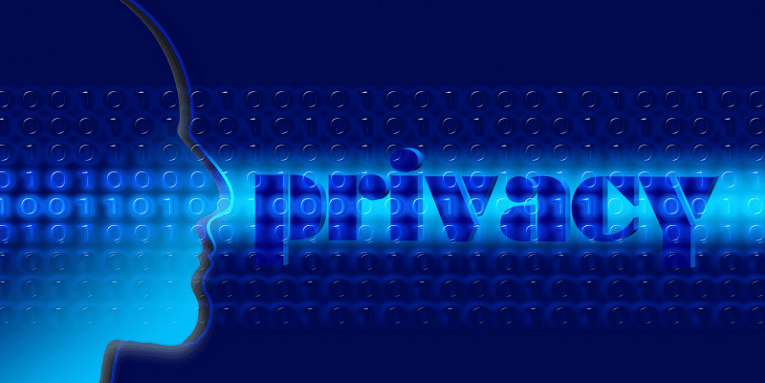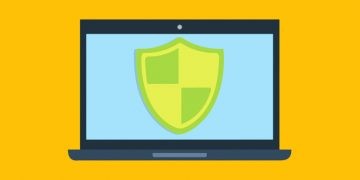Five Things We Should Do to Secure Our Personal Data in 2019

Personal data theft is at an all-time high. Based on a study published by Javelin Strategy, the cost of personal data theft in 2017 in the United States was almost $17 billion. It wouldn't be surprising if at the beginning of 2019 we were to find out that 2018 was even more lucrative for cybercriminals.
Although the job of securing your personal data mostly depends on the service that manages your information, we cannot forget that there are things we can do to protect it, too. Therefore, in this blog post, we decided to talk about five things that would help us secure our personal data better.
Table of Contents
Be Wary of Phishing
Email phishing is a threat that affects both individual and corporate users. We believe that you have an inkling what phishing is, but perhaps you might not be able to recognize a phishing email when you receive one. Therefore, we would like to point out several things about phishing emails that will eventually be useful in securing your personal data.
First, phishing emails often look like real messages from legitimate senders. However, the main objective of such emails is to lure important information from you. For instance, you may receive a message saying that your system has been hacked or that there is some problem with your bank account, and thus you need to enter your password into a given form or click an outgoing link.
Phishing emails often play with your emotions, trying to make use of the fake sense of urgency. However, before you enter personal information, you have to stop and think twice whether the situation is really that urgent.
If this is too much to wrap your mind around at the moment, you can check out our entry on how to spot and avoid phishing scams, and learn more about it. We strongly recommend educating yourself on phishing scams to secure your personal data.
Use Strong Passwords
Just like ”phishing,” ”strong password” is probably also one of those keywords that you have encountered quite often if you are online every single day. As annoying as it might sound, strong passwords ARE important if you intend to secure your personal data online.
All of the accounts that you have, from your online banking accounts to your social media handles have to be protected with passwords. We wouldn't find it surprising if you were to say that you reuse your passwords for different accounts (after all, that is quite convenient), but it would definitely prove that your personal data is far from secure.
Sure enough, reusing passwords is a bad idea. Another bad idea would be creating memorable passwords. The longer the password is and the more random symbols it has, the stronger it is. At the same time, we understand that maintaining a lot of strong passwords is quite a challenge, and therefore, we would like to recommend using Cyclonis Password Manager that would keep track of your passwords. The tool can also help you generate, store, and renew your passwords, thus saving you the trouble of doing everything by yourself. Also, if you wish to learn more about what constitutes a secure password, you can check this blog post here.
Consider Using Multi-Factor Authentication
What can be better than a strong password? Several strong passwords. Ask any security expert out there, and they will tell you that if a certain service offers multi-factor authentication, you should most definitely enable it. With multi-factor authentication, your personal data would be protected under several layers of security, thus making it harder for anyone to steal it.
For example, one of the elements of multi-factor authentication can be a temporary text passcode that you receive to your phone. Thus, technically, no one but you would be able to access your accounts. So this is a rather effective method to secure personal data. Most of the services these days offer multi-factor authentication, and you should consider enabling it today.
Don’t Over-share on Social Media
Securing personal data is not just about protecting your social media accounts with strong passwords; it's also about what you SHARE on your accounts. Although we often think more about our credit information and online banking information when we consider the steps we have to take to protect personal data, social media is actually just as risky.
Hackers do not necessarily have to steal everything in one try. It is very common to collect bits of personal data from different accounts and then piece them all together like one puzzle to steal your identity. So if you want to share something private, make sure you don't broadcast it to the entire world.
Also, it would be a good idea to go through your followers or friends once in a while, to see whether you really know those people. You can also check out our feature on sharing personal information via social media we have published several weeks ago, too. In that blog post, the topic is covered in greater detail, and you can also find more tips on how to secure your personal data.
Don’t Forget to Update Your Software
This might come as a surprise, but your personal data security depends on the software you're using, too. We do know that sometimes users turn off automatic update features on the apps and programs they use because they find it annoying, but those features are there for a reason. New updates aren't there to take up your disk space. They are there to fix bugs and vulnerabilities that might be exploited by cybercriminals. Therefore, to secure your personal data, you have to make sure that all of the software you use is up-to-date as well.
We can only expect to find more solutions to ensure personal information security in the future. However, an individual user will always have to do their part to secure personal data, so it is never too late to educate yourself about the steps you can take to prevent hackers from stealing your information.








